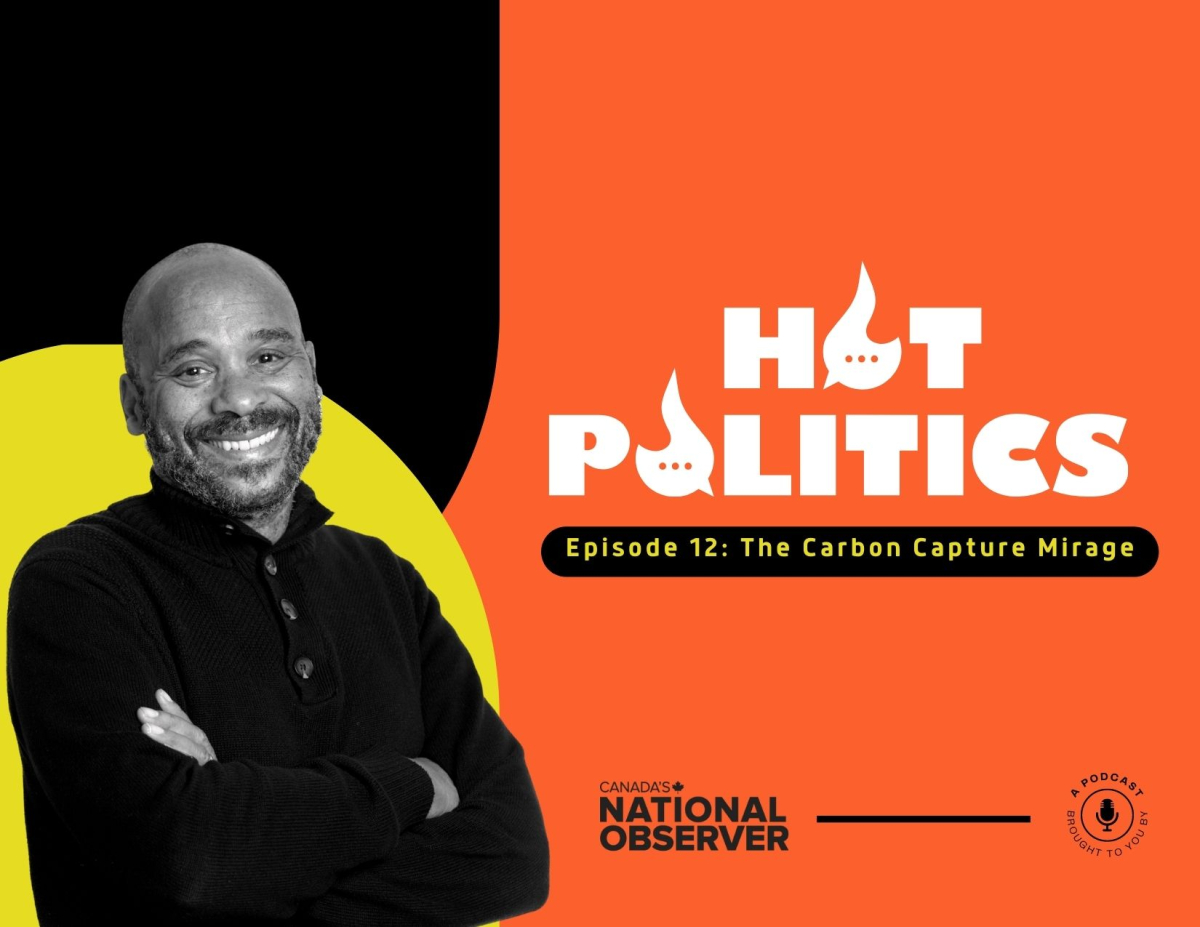Support strong Canadian climate journalism for 2025
When scientists and activists first raised alarm bells on climate change, the oil and gas industry was a reluctant player. But now, it boasts that carbon capture is one of the fastest ways for the industry to reach net-zero emissions by 2050.
The process entails capturing carbon emissions and storing them underground. Governments around the world have bought into this approach, providing billions of dollars in tax credits and grants to the fossil fuel industry to make it happen.
Although carbon capture sounds like a good term for fighting the climate crisis, scientists and environmentalists question its ability to make a difference.
In Episode 12 of Hot Politics, host David McKie examines the carbon capture utilization and storage process, or CCUS for short, and explores why some are calling it greenwashing.
June Sekera, a public policy practitioner and researcher, takes us through the laborious and expensive process of carbon extraction, transportation and storage.
“In the United States, we've had seven CCS projects at power plants since about 2011, and every one of them has failed. They've all been subsidized by the government. They've had hundreds of billions of dollars in subsidies and every one has failed because they don't work," she says.
McKie also speaks to Angela Carter, an energy transition specialist at the International Institute for Sustainable Development. Carter researches Canada's fossil fuel development and how it fits with international approaches to climate policy.
She thinks rich oil companies should not expect taxpayers to pay to clean up their mess and says their solution is a mirage.
“Carbon capture and storage is being presented as a climate solution. But in reality, for the most part, it is an oil production aid or method,” she says.

Look for Hot Politics on your favourite listening app to learn exactly how the industry uses carbon capture to escalate its old habits and what governments are doing about it.
Hot Politics is made possible by listeners like you. If you’ve supported the podcast already, thank you. If you haven’t, click here to donate what you can to help us keep producing valuable journalism.
Got questions or comments? Email us at producer@nationalobserver.com.
You can also follow us on Twitter @NatObserver.






Comments
Carbon Capture, pure 100% greenwashing by the oil & gas industry. Why 2050, why not now or 2030?
These dates being thrown around is a way to delay any accountability to some future generation, while they greenwash and do nothing. Governments are wasting their money giving the industry money to pursue something that will never happen.
"examines the carbon capture utilization and storage process, or CCUS for short, and explores why some are calling it greenwashing."
Q: Why are some calling it greenwashing? A: Because it is greenwashing.
Next maybe he can examine the frozen water that falls from clouds, and explore why some are calling it "white". :D